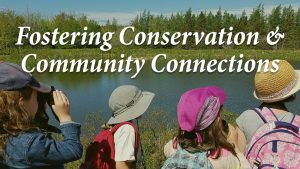 Speaker: Billy Helprin, Director, Somes-Meynell Wildlife Sanctuary, Somesville, Maine
Speaker: Billy Helprin, Director, Somes-Meynell Wildlife Sanctuary, Somesville, Maine
The Somes-Meynell Wildlife Sanctuary was established in 1985 with a mission of wildlife habitat conservation and ecological education in the Somes Pond watershed, but today reaches well beyond with its education and research work. Long term and more recent research and monitoring projects include loon breeding success, alewife migration, aquatic invasive species surveys, and Courtesy Boat Inspections for aquatic invasives. The Sanctuary has been a host site for the University of Maine Sensing Storm Surge research project and other larger scale investigations. With only one year-round staff person, the Sanctuary extends the reach of its programs by working with a wide range of partners and volunteers. Billy will describe efforts on Mt. Desert Island to cross organizational boundaries, capitalize on natural strengths of each group, and work together to accomplish much more than by going it alone. One of the goals of this work is the development of stronger connections between young people (and older folks too) and nature. Those bonds, formed by engagement and greater understanding, are critical to our social, economic, and environmental future.
Billy Helprin has been the Director of the Somes-Meynell Wildlife Sanctuary on Mt. Desert Island (MDI) since 2015. Billy coordinates multiple wildlife research and monitoring projects; provides professional development for teachers and learning experiences for students aimed at increasing interdisciplinary thinking, raising scientific literacy, and connecting people to their local outdoor environments; and manages the lands and waters that comprise the Sanctuary. Prior to working for the Sanctuary he was Maine Coast Heritage Trust’s MDI Regional Steward where he managed preserves, monitored conservation easements, and worked with many area partners and volunteers on conservation, education, trail, community garden, invasive plant, and research projects. Prior to living in Maine, Billy studied bison and elk on the National Elk Refuge in Wyoming, desert bighorn sheep in southeastern Utah, and large mammal ecology in Kenya. He also taught science for Canton City Schools in Ohio and many field science classes while with the Teton Science School, Great Plains Wildlife Institute, and independently. Billy has a Bachelor’s degree in Environmental Science and Biology from St. Lawrence University, a Masters degree in Wildlife Biology from Utah State University, and a Master of Arts in Teaching from Kent State University.


